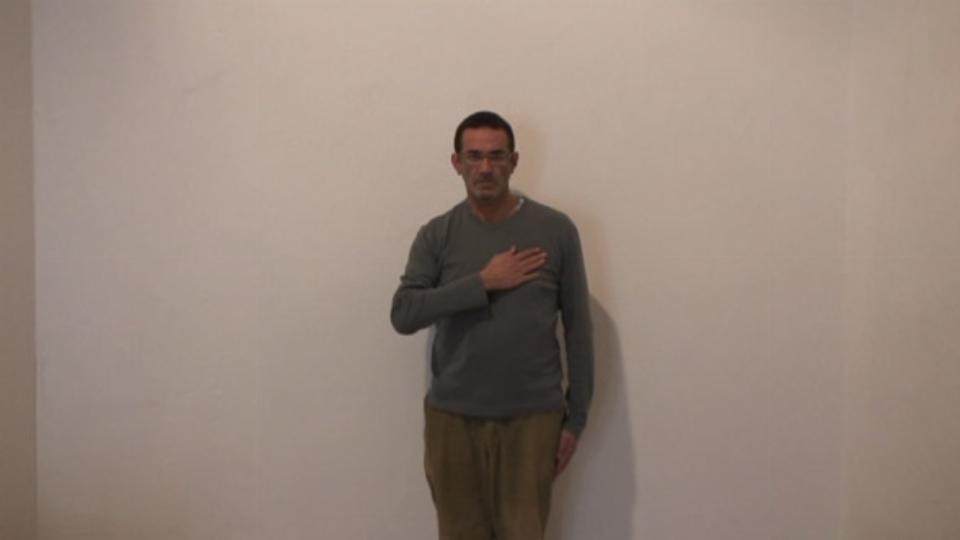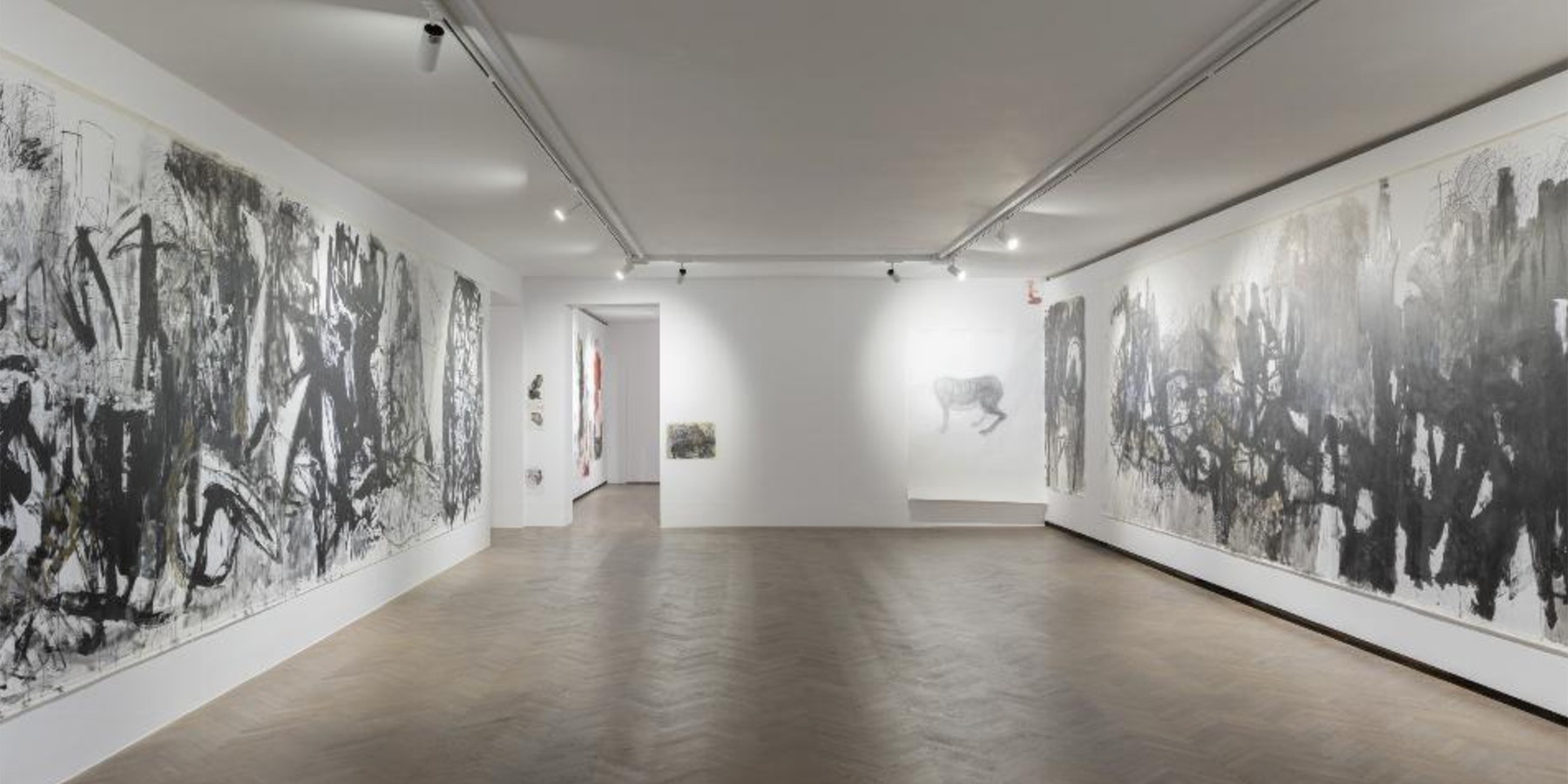Slaven Tolj
Patriot
Slaven Tolj
Patriot, 2007, video (recording from a performance), 2 min 33 sec
Collection II of the Arsenal Gallery in Białystok. Work purchased by the Arsenal Gallery

The recording from the performance Patriot, which took place in Zagreb in 2007, shows Slaven Tolj saluting to the sounds of the national anthem of Croatia. Tolj’s gestures refer to the forms of salute used over the years by the fascists, the communist partisans, the Yugoslav army and the Croat army. Each salute is associated with a different system and the ideology that spawned it. The concept of patriotism, although inherent in all of them, carries different overtones in each case.
In Tolj’s work, the salutes are repeated rhythmically one after the other, thus turning into empty, meaningless gestures. The inevitable feeling of excess is accompanied by a realisation that the overexploitation of symbolic gestures leads to a devaluation of both the symbols themselves and the ideas of patriotism with which they are associated. Tolj’s performance may therefore be perceived as a condensed commentary on social reality and on the rhetoric of many states, political systems and social groups that operate within them.
Patriotic gestures are an unavoidable element of state celebrations, in which the significance of the celebrated or commemorated events is often submerged under the bombastic setting. In the media and in the everyday experience patriotism commonly functions as a word rather than under the guise of a gesture. The word ‘patriotism’ is present in political declarations and in social debates, while ‘patriot’ is one of the most common descriptive terms in both the collective and individual image of the citizen/citizens. In the face of the excessive use of words and gestures, Tolj enquires about the place and significance of patriotism in the image of a nation. His diagnosis is disturbing: the level of patriotism present in social reality seems inversely proportionate to the frequency of this word occurring in the statements of state officials and the everyday speech of citizens.
The phenomenon of “patriotism”, its manifestations and the values and meanings associated with it were purposely observed by Tolj at various points in the political life of Croatia: in the period of socialism, during the civil war of 1991–1995, in the process of political transformations after the fall of Yugoslavia, in the era of globalization and multiculturalism nascent in the conditions of a post-totalitarian regime. He is not alone in his analysis of the operation of patriotism in social reality; his conclusions are, in fact, similar to the tenor of Kuba Bąkowski’s work The Flag (2002)*, where patriotism, albeit in the Polish context, is described similarly as in Tolj’s work: as a form devoid of all significance.
Izabela Kopania
translated from Polish by Klaudyna Michałowicz
* Work in the Collection II of the Arsenal Gallery in Białystok.

PLAN YOUR VISIT
Opening times:
Thuesday – Sunday
10:00-18:00
Last admission
to exhibition is at:
17.30